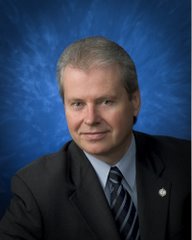“the
presidency of Trump — and how religion does or doesn’t play a role — is
expected to captivate the country in 2017.”
The
article below touches on this, that reveals why the American “big media” missed
the grassroots voter surge for Trump. Canadians were surprised at the election results,
because the media, does not sympathetically report on the emotional issues at
the “religious belief level”. Trump
supporters, had enough of the leftie moralizing and behavioral hypocrisy. They
held their noses and voted for Donald, as they recoiled from the government
legacy. The prospect of Hillary, meant more of the
same, and the ideas of Bernie followers in her camp, sealed the deal, as voters
recoiled. Sarah writes about what
really moves votes.
Here’s
what we think will be the major religion stories of 2017. By Sarah Pulliam Bailey January 3, 2017 Washington Post
The
new year could be turbulent for religion in America. Several hot-button issues — including
immigration, abortion, poverty, health care, gay rights and education —will put religion near the center of public
life and debate.
But
the issue that could especially flare up?
In a Trump administration,
“religious freedom” is expected to either flourish — or come under attack —
depending on who defines religious freedom.
In
a divided, angry America, religious freedom is frequently seen through the lens
of the “culture wars,” says Charles Haynes, director of the Religious Freedom
Center at the Newseum. Once Donald
Trump is inaugurated, many religious conservatives will seek to rollback
culture war advances made by President Obama, including on abortion rights and
LGBT rights.
“For
some, religious claims for exemptions and accommodations are a form of
bigotry,” Haynes said. “For others, minority religious groups —
especially Muslims — are an existential threat to American traditions and
values.”
Many
observers are especially watching how Trump’s relationship with Muslims in the
United States and abroad will unfold after he campaigned on a pledge to ban
Muslim immigrants. In the weeks ahead
of his inauguration, Trump’s advisers have issued conflicting statements about
the status of his plan. Trump’s own
statements have been a mix of repeating, softening and vaguely re-endorsing a
ban, so it’s unclear what might take place.
Trump’s
policy on Muslims is likely the most anticipated religion story because
Americans could see it as a referendum on anyone’s right to free belief, said
Rashid Dar, a research assistant at the Brookings Institution.
“If
the floodgates are opened to discrimination based on ideology or belief, then
it threatens all Americans, who will have to ensure that they are not the next
victims of policies aimed at rooting out ‘un-American’ beliefs,” Dar said.
Another
major story expected early in Trump’s administration includes any changes to
the Supreme Court. (in an appeal to religious conservatives, Trump promised to
appoint justices who oppose abortion.)
Many
of the current religious freedom battles could quickly disappear during Trump’s
presidency, especially if the Affordable Care Act — the target of many
religious freedom lawsuits and conflicts — is repealed, Haynes said.
Other
battles may worsen, he predicts. Many Native Americans, for example, fear that
their religious freedom will suffer a significant blow if the Trump
administration reverses the Obama administration and allows the Dakota Pipeline
project to go forward near the Standing Rock Reservation.
Many
religious conservatives think the Obama administration had overstepped on
issues of religious freedom in areas such as contraceptive access under the
Affordable Care Act and gay rights, especially the Supreme Court’s decision
that was seen as providing sweeping protections to same-sex couples and
potentially threatening the tax-exempt status of religious organizations. Will the Trump administration now work to
address these concerns?
Many
states will be emboldened by the election to pursue laws that provide broad
religious exemptions to same-sex marriage, and the ACLU expects more religious
freedom bills than ever this year. These
cases will possibly resurrecting debates over what the government can — or
can’t — compel faith organizations to do. For instance, will business owners be
required to follow anti-discrimination laws and bake a cake for a gay wedding
if it violates their religious beliefs?
Other
scenarios observers are considering include: Will legislators renew efforts to
pass “anti-Sharia” laws and seek to limit what they see as the growing
influence of Islam in America?
Will
Trump fulfill his promise to end the Johnson Amendment, which prevents certain
tax-exempt organizations such as churches from endorsing or opposing political
candidates? Will he quell concerns from
some that academic institutions could lose federal funding over issues such as
gay rights?
Will
he reverse Obama’s declaration that transgender students must be allowed to use
bathrooms consistent with their gender identity, a question the Supreme Court
is considering?
The
concept of religious freedom as protected under the First Amendment has become
polarizing, but Haynes said it has one definition: Liberty of conscience for
people of all faiths or of no faith. “This
should mean taking claims of conscience seriously and providing accommodations
whenever possible,” Haynes said. “And it should also mean standing up for the
rights of others, including those with whom we deeply disagree.”
Other
religion-related stories are expected to surface under a changing
administration. With reports of rising
incidents of Islamophobia and anti-Semitism during the 2016 campaign, activists
will look for ways to counter bigotry. Will
Trump’s presidency create unlikely bedfellows and spur interfaith efforts or
racial reconciliation efforts? Some are less hopeful.
“Cynical
me says the racial reconciliation efforts won’t happen,” says Anthea Butler, a
religious studies professor at the University of Pennsylvania, who believes
churches are drawing a line for or against Trump. “I
think that ship sailed a long time ago in the 1990s and things are too
polarized right now.”
A
conservative shift could also spur a rise of the “religious left.” For
instance, some religious institutions are planning to offer sanctuary to
undocumented immigrants. Other
organizations may undertake their own acts of resistance — and dozens of
religious leaders, for instance, have already signed an open letter vowing to
organize against bigotry.
Immigration
is changing the face of religion in America. Hispanics are the fastest growing
segment of the evangelical church. They also make up a considerable portion of
the Catholic Church in the United States.
“Pastors
across the country view immigration not just as a political issue but as a
church issue because many members of their churches are immigrants who will be
significantly impacted by any changes in immigration law or policy,” said Jenny
Yang, vice president of advocacy and policy at World Relief.
Policy
changes in other major areas, such as health care and education, will be
watched closely by religious advocates. Education activists are eyeing issues
related to public education and federal funding because Trump picked Betsy
DeVos as his secretary of education. DeVos, who has deep ties to Reformed Christian
circles in Michigan, favors school vouchers, a position that appears to be
motivated by her Christian faith.
Christianity
has been on the decline in the U.S., but religious voters such as evangelicals
(26 percent) and Catholics (23 percent) made up a significant chunk of the
electorate in 2016, especially compared to voters who do not affiliate with
religion (15 percent). Will Trump deliver on his promises to
religiously conservative voters? Will they play a large role in his
administration?
Many
other religion stories this year will unfold apart from Trump’s presidency,
which we will cover in news, analysis and commentary here at Acts of Faith.
Globally, Protestant Christians are expected to celebrate the 500th anniversary
of Martin Luther’s “95 Theses,” the theological propositions and questions for
the Catholic Church considered the spark for the Protestant Reformation. And Pope Francis is expected to continue to
shape a Catholic Church that emphasizes the marginalized. But
the presidency of Trump — and how religion does or doesn’t play a role — is
expected to captivate the country in 2017.









1 comment:
Finally some prescient writing! Thanks for finding this Paul; I would never have seen this. The author is observing, but the crunch comes with bottom line policy implementation. Will Sharia be stopped? Will "personally offended" politics be overcome?
Post a Comment